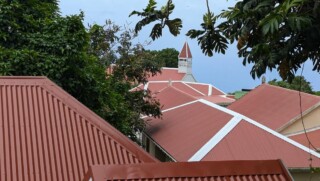More Attention needed for Caribbean Food Production

GEORGETOWN, Guyana (CMC)— A senior official of the Caricom Secretariat has warned that the current vulnerability of the food production in the region is stark, as collectively the Caribbean continues to be buffeted by the coronavirus (COVID-19) pandemic, the ravages of climate change, pests and plant-borne diseases and other associated maladies, however, he noted that there are indeed opportunities.
“This is therefore not a time for lamentation but represents a call to action. Indeed, when cognisance is taken of the fact that the worlds food production needs to increase by 70 per cent by 2050 to feed the expanding global population, this represents a real opportunity,” Joseph Cox, the assistant secretary-general, Trade and Economic Integration, told the 94th Special Meeting of the Council for Trade and Economic Development (COTED) on Agriculture that ended on Thursday.
He told the virtual meeting that comprised of the region’s agricultural ministers that when nourishment is brought into the equation, the challenge and therefore the opportunities becomes even more pronounced.
Cox said that research has revealed that by 2027 the world will be short of 214 trillion calories per year, as the calorie production gap, the difference between calories used and calories produced, continues to widen.
He said growth in food demand emanates both from population growth and increasing per capita income over time as countries develop.
Net importers
“In fact, with the exception of Belize and Guyana, all other Caricom countries are net food importers, with at least seven of these countries importing more than 80 per cent of their available food, rendering the Region a net calorie importer. This is a troubling data point, which mushrooms into a full-blown crisis when we are reminded that all foods are not created equal, even if they weigh the same.”
Cox warned also that the region is at a point where on average, acreage under use for agriculture is no longer expanding, as the arable lands are being repurposed for use in other economic activity.












